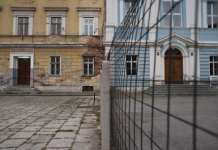The ineffectiveness of Pakistani Criminal Justice System has repercussion not only for domestic and international security but also a major contributing/supporting factor to the gender based violence in Pakistan.
A justice system full of poor investigations, corruption, intimidation, external interference in trials, poor prosecution, lack of forensic evidence instruments and above all the right of complainant to make compromises at any stage of trial results in the lowest conviction rate, ranging around 5%. The poor criminal justice system result was reflected in a recent Supreme Court decision on Mukhtaran Mai, a woman who was gang raped by the orders of local council of elders (Jirga). The case was registered on 30 June 2002, against 14 accused under the charges of gang rape and anti-terrorism laws. The court finally released the 13 out of 14 accused, after a proceeding of over nine years. The decision has astounded the civil society in Pakistan, working towards the elimination of gender based violence.
Despite the fact, that thousands of terrorist attacks have been carried out in last six years in Pakistan and hundreds of militants have been arrested, many of them even trialed but so far not a single conviction against any of the terrorist has come to surface. Though National Judicial Policy has been formulated in 2009 and set for implementation but it has not turned to be responsive for the citizen’s needs.
Presence of parallel legal systems in Pakistan is also a contributing factor which leads to the injustice, inequality and violation of fundamental rights. The established different courts and forums under Common Law, Sharia Law and Tribal Law and all of them parallel to each other, sets paths towards an unequal and unjust criminal legal system. Moreover, the presence of informal justice system, known as Council of elders has led to certain inhuman decisions, including the one mentioned above where a council of elders in south of Punjab, ordered to rape a woman, as there was allegation of her brother’s relationships with a girl of the rival tribe in 2002.
According to Aurat Foundation’s data collected from various sources, a number of around 8500 cases of gender based violence reported in 2010. Again, these figures are only the tip of in iceberg as women in Pakistan, having less faith in criminal justice system, re-victimization and facing social taboos, hardly report such crime. Moreover, certain forms of violence are not even recognized as a crime under the law. The violence faced by women in domestic sphere is always considered as a private affair and is not cognizable. Pakistan, despite having the highest number of honor related killings in the world, still carries such legislations which allow the legal heirs to forgive the perpetrator of such crimes. Some unofficial resources described this number as high as upto 3000 an year.
The recent decision of Supreme Court on Mukhtaran Mai case has widely disappointed the women of Pakistan who stands against the barbarism and crimes against women by society and state. Mukhtaran Mai is amongst those courageous women who believes that the silence against cruelty is an abetment to cruelty and stood against the outrageous acts against her. The case was a combination of 2 different legal systems, rape charges under Sharia Law while the anti-terrorism and abetment charges under Common (Anglo-Saxon Law). The trial court announced her judgment on 31 August 2002, sentencing six out of fourteen accused to death.
In the meanwhile, Ms Mai, who belongs to low socio-educative class, decided to establish her organization (Mukhtar Mai Women Welfare Organisation) to raise education level of girls in her area and established two schools. In March 2005, Lahore High Court reversed the order by the trial court and acquitted 5 out of 6 convicted while the death of six accused was commuted to life imprisonment. In the meanwhile, highest Islamic court intervened and suspended high court order, saying that the high court does not have jurisdiction to try the offences under sharia law.
Having conflict among two higher courts, the Supreme Court (most superior court) intervened and announced that Supreme court will hear the appeals and temporarily suspended the high court decision of acquittal of 5 accused person. The final decision of the Supreme Court was announced a week ago when she upheld the High Court decision and acquitted 5 accuse person. Shaken Mukhtaran Mai, while interviewing after judgment said that “why courts in Pakistan have kept her hanging to wait, if the decision was going to be such unjust”.
The decision came to the wide public criticism and civil society organizations & networks as well. Networks such as Mumkin EVAW Alliance and Insani Haqooq Ittehad showed their great dismay over the decision and term Supreme Court decision as a reflection of Gender biased and inefficient criminal justice system.
Justice System in Pakistan carries a great trust deficit by the marginalized sections of society including women, religious minorities, and labor organizations. Gender based violence cannot be eliminated fully unless the criminal justice in Pakistan in made uniformed, unbiased and effective.







